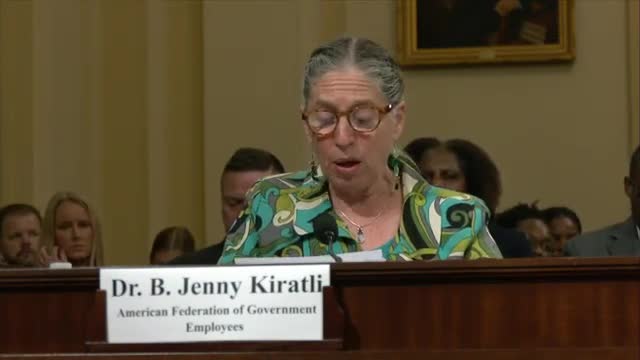Veterans face care challenges amid privatization concerns
June 14, 2024 | Veterans Affairs: House Committee, Standing Committees - House & Senate, Congressional Hearings Compilation

This article was created by AI summarizing key points discussed. AI makes mistakes, so for full details and context, please refer to the video of the full meeting. Please report any errors so we can fix them. Report an error »

In a recent government meeting, discussions centered on the implications of the Mission Act and the necessity of legislative improvements for veteran care. While the Mission Act has expanded access to non-VA facilities, concerns were raised about the potential for unintended duplication of services, increased costs, and fragmentation of care. This is particularly critical for veterans with spinal cord injuries and disorders (SCID), who require specialized expertise that non-VA providers may lack. The absence of access to essential VA resources, including specialized medical equipment tailored to individual needs, poses a significant risk to the quality of care.
Advocates emphasized the importance of maintaining the integrity of the VA's specialized care model, which integrates services and supports research to develop best practices for treating SCID. The meeting also highlighted the urgency of passing the Elizabeth Dole, 21st Century Veterans Healthcare and Benefits Improvement Act (HR 8371). This legislation aims to enhance home care services for veterans, particularly through the veteran-directed care program, which allows veterans to receive care in their homes rather than institutional settings.
The proposed bill would eliminate the current 65% cap on home care services, thereby improving independence and quality of life for veterans. Failure to pass this legislation could lead to unacceptable circumstances for veterans, as noted by representatives from the Paralyzed Veterans of America (PVA).
Additionally, the meeting addressed the need for accessible and safe contracted exam facilities for veterans diagnosed with amyotrophic lateral sclerosis (ALS), a condition that can progress rapidly and severely limit mobility. Ensuring timely access to appropriate care is crucial for these veterans, underscoring the ongoing challenges within the VA healthcare system.
Advocates emphasized the importance of maintaining the integrity of the VA's specialized care model, which integrates services and supports research to develop best practices for treating SCID. The meeting also highlighted the urgency of passing the Elizabeth Dole, 21st Century Veterans Healthcare and Benefits Improvement Act (HR 8371). This legislation aims to enhance home care services for veterans, particularly through the veteran-directed care program, which allows veterans to receive care in their homes rather than institutional settings.
The proposed bill would eliminate the current 65% cap on home care services, thereby improving independence and quality of life for veterans. Failure to pass this legislation could lead to unacceptable circumstances for veterans, as noted by representatives from the Paralyzed Veterans of America (PVA).
Additionally, the meeting addressed the need for accessible and safe contracted exam facilities for veterans diagnosed with amyotrophic lateral sclerosis (ALS), a condition that can progress rapidly and severely limit mobility. Ensuring timely access to appropriate care is crucial for these veterans, underscoring the ongoing challenges within the VA healthcare system.
View full meeting
This article is based on a recent meeting—watch the full video and explore the complete transcript for deeper insights into the discussion.
View full meeting